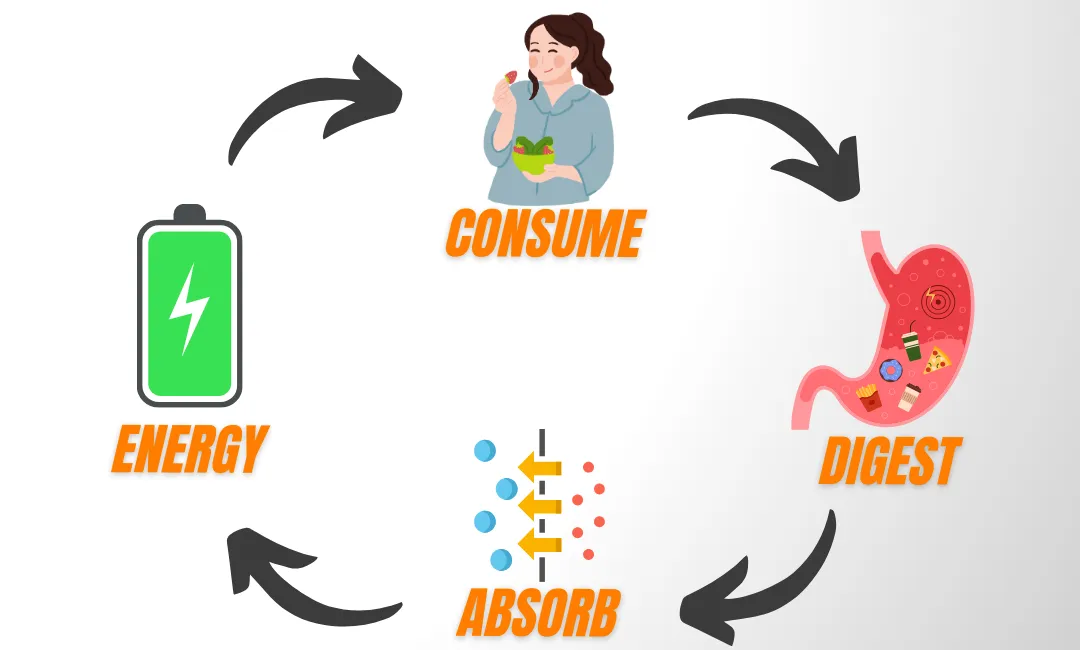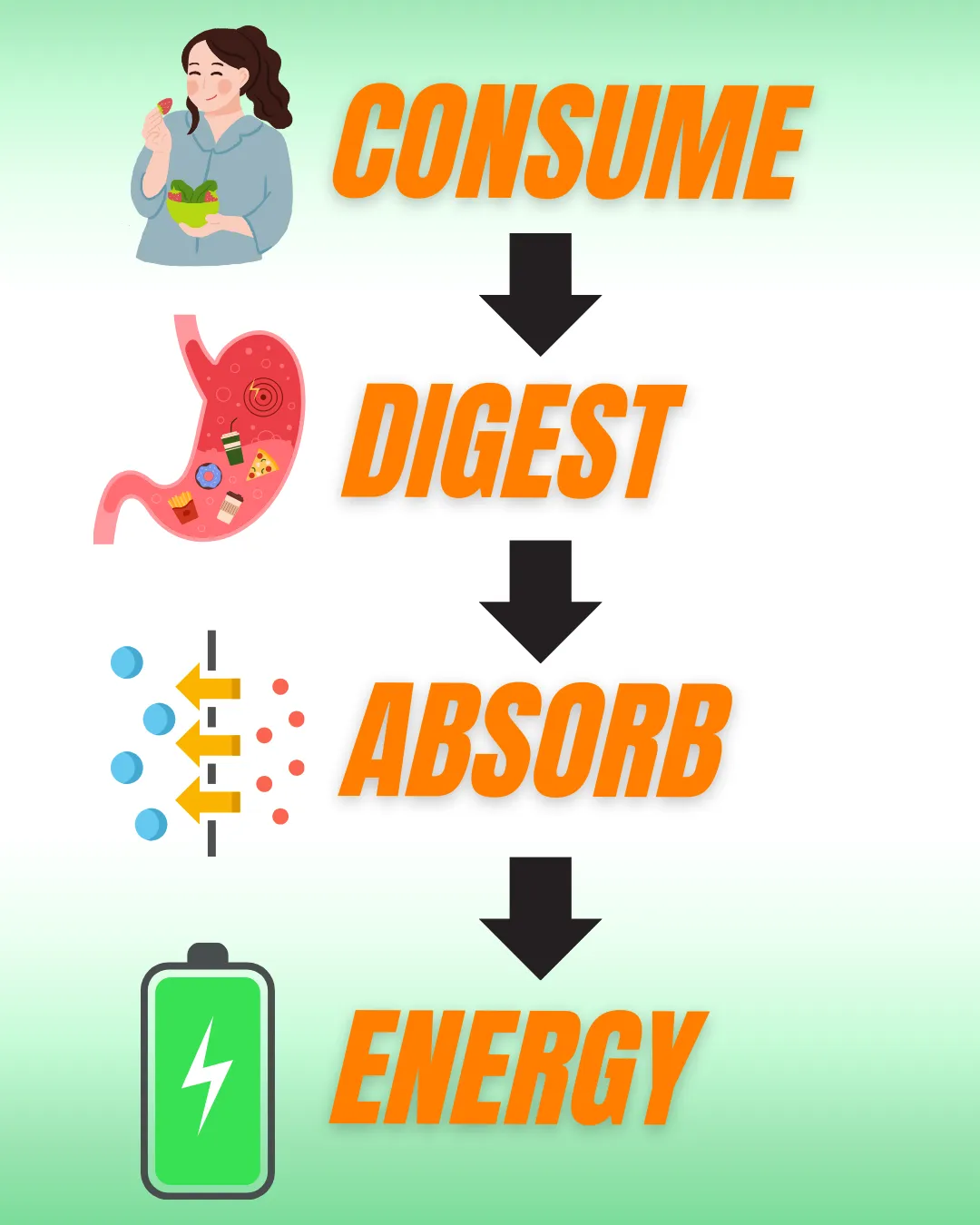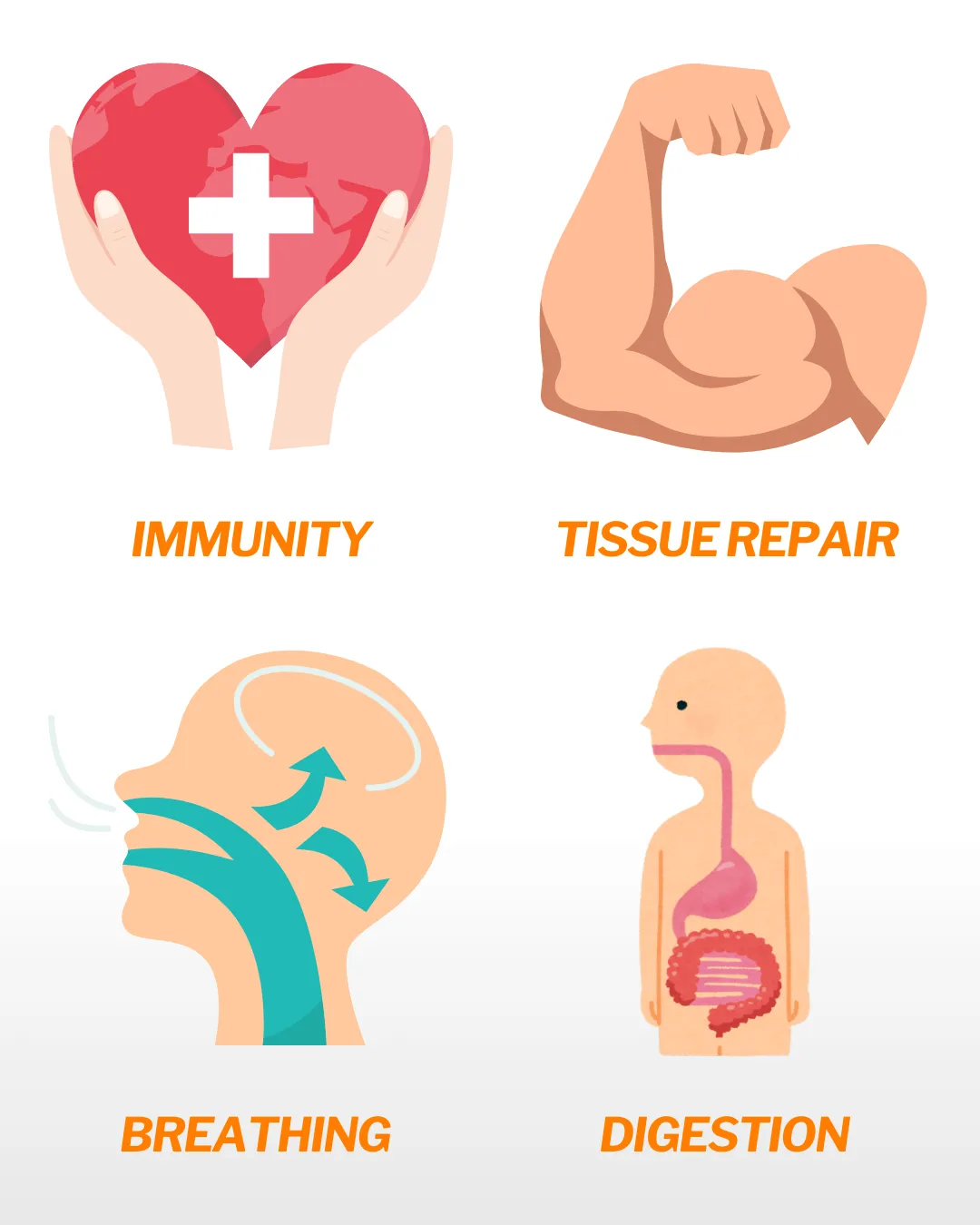

What does 'METABOLISM' mean?
The actual definition of 'metabolism' is: the chemical processes that occur within a living organism in order to maintain life. When we refer to metabolism in regards to weight loss... think of it as how the cells in our body convert food into energy.
Simplified again on a macro level - it's how we digest the foods we eat, to stay alive.


Your metabolism on a practical level.
Every single thing we eat is going to contain calories.
Calories are simply a unit of energy.
Calories = energy
Think of calories as petrol.
And our body as the car.
We eat food to consume calories, just like we fill up our car with petrol.
We then burn the calories we ate, whenever we use energy, just like our fuel goes down as we drive.
So why do we gain or lose weight?
The total number of calories we consume is going to either to add up to MORE than we used, LESS than we used, or the SAME as we used.
If we eat more than we used, that is a calorie surplus. You will GAIN weight.
If we eat less than we used, that is a calorie deficit. You will LOSE weight.
If we eat the same as we used, that is calorie maintenance. Your weight will stay the same.
There is NO WAY around this.
This applies to EVERY SINGLE PERSON.
So how do we know how many calories to eat?
This IS where everyone is different.
The calories we need to eat to either lose weight, gain weight or stay the same, are based on several factors.
The 2 big factors are BMR and TDEE


BMR stands for Basal Metabolic Rate (resting metabolic rate). This is the number of calories your body needs to maintain basic physiological functions while at rest.
Think of it like this:
If you were to wake up and do absolutely nothing except lay on the lounge all day and breathe normally... the calories you burned would be your Basal Metabolic Rate. (think of it as your baseline metabolic rate)
These functions include breathing, circulating blood, regulating body temperature, and supporting cellular activities.
BMR is influenced by factors such as age, gender, weight, height, and body composition (percentage of muscle and fat).
BMR represents the foundation of your daily calorie expenditure. This will be determined predominately from genetics and the most effective (pretty much only way) to way to increase your BMR is my increasing your muscle mass percentage.
Often your BMR is what we think of whenever describing our Metabolism or Metabolic Rate.


EXAMPLE:
The BMR for a female who is 45 years old, 80kg and 5ft 6 is 1400 calories.
Therefore, if that person was to do nothing all day, except sit down all day and eat 1400 calories worth of food.
They would maintain 80kg.
And...
If they ate 1300 calories, they would lose weight.
If they ate 1500 calories, they would gain weight.
NOTE:
It is not that black or white!
Plenty of other factors come into play with fat loss... this is purely the foundation of energy consumption and energy expenditure.
Then we need to factor in your daily energy expenditure

TDEE stands for Total Daily Energy Expenditure.
It is the total number of calories your body uses in a day.
This means your BMR + any calories burned throughout the day from any physical movement:
- walking up the stairs
- brushing your teeth
- going to the gym
- getting into the car
- playing soccer



In summary:
TDEE is the calories burned from your daily activity and movement + your BMR (basal metabolic rate)


BMR ACCOUNTS FOR THE CALORIES USED FOR OUR AUTOMATIC BODILY PROCESSES:
- digestive processes
- pumping blood through the body
- concentration & thinking (brain power)
- creating new cells
Essentially the calories we use to 'keep the lights on.'
TDEE IS ANY ACTIVE MOVEMENT WE DO DURING THE DAY:
- walking up the stairs
- brushing your teeth
- going to the gym
- getting into the car
- playing soccer
The total calories we used during the entire day.
Our Metabolism is the total of our BMR and TDEE.
BMR + TDEE = YOUR METABOLISM
*there are other factors including the Thermic Effect of Food however these play minor roles and initially not worth factoring in. We need to keep it simple and focus on the big key factors that generate big results.
The total of what we eat is the total calories (total energy) consumed.
The total calories we consume are going to have 1 of 3 outcomes.
1. You're in a calorie surplus.
The total of what we eat is MORE than our BMR & TDEE (more than what we burned/used)
Resulting in weight GAIN.
2. You're in a eucaloric state (maintenance).
The fancy way of saying you ate the same amount of calories are you burned.
Resulting in you maintaining the SAME weight
3. You're in a calorie deficit.
The total of what we eat is LESS than our BMR & TDEE (less than what we burned/used)
Resulting in weight LOSS
